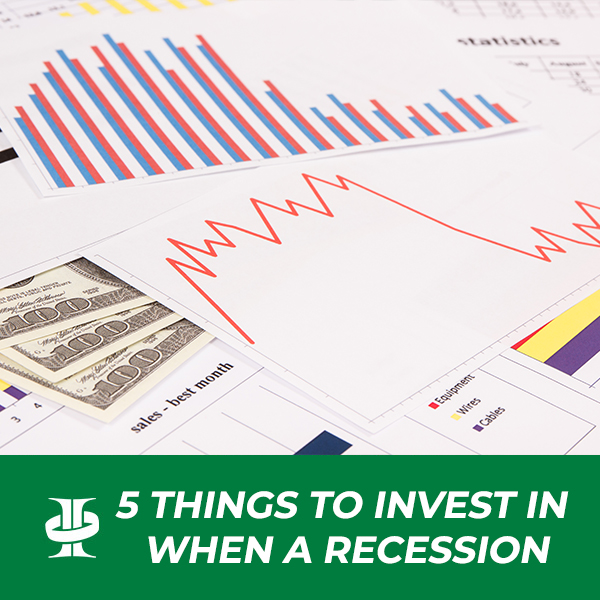When the market is going well, it is easy to forget that what goes up can also go down. But economic slowdowns usually tend to be cyclical, which means another recession is in the future. Whether it’s fast or far-fetched, it’s wise to prepare for the possibility of its happening. This way, you won’t be joining the panicked escape from stock to money. Instead, you’ll remember that stocks can perform even during downturns or recession- you just need to know which ones. A financial advisor can help you build a recession-proof investment plan. Here are five things we recommend to invest in when a recession hits.
1. Seek Out Core Sector Stocks
During a recession, you may be tempted to abandon stocks, but experts say it’s best not to run away from equities completely. When the rest of the economy is on shaky ground, there are often a few sectors that continue to move forward and provide investors with consistent returns.
So, if you want to insulate yourself during a recession partly with stocks, consider investing in these sectors (healthcare, utilities, and consumer goods). People still spend money on medical care, household items, electricity, and food, regardless of the state of the economy. As a result, these stocks tend to do well during recessions (and poorly during booms).
2. Focus on Reliable Dividend Stocks
Investing in dividend stocks can be a great way to generate passive income for you. When comparing dividend stocks, some experts say it’s a good idea to look for companies with low debt-to-equity ratios and strong balance sheets.
If you don’t know where to start, you may want to look at dividend Aristocrats. These are the companies that have increased their dividend payouts for at least 25 consecutive years.
3. Consider Buying Real Estate
The 2008 housing market crash was a nightmare for homeowners. However, it has turned out to be a boon for some real estate investors. When the recession hits and home values go down, it may be an opportunity to investment properties.
If you can rent a property to a trusted tenant, you will have a steady stream of income while getting through the recession. Once the real estate value starts to rise again, you can sell at a profit.
4. Purchase Precious Metal Investments
Precious metals, such as gold or silver, tend to do well during a market slowdown. But since the demand for these types of goods often increases during recessions, their prices usually rise as well.
You can invest in precious metals in many different ways. The most direct way is to buy coins or bars from the seller or coin dealer. While this is different from buying a security, technically it is as good as any other option.
If you are more interested in buying securities of precious metals, then turn your attention to ETFs. These funds are groups of investments within a single industry, in this case the precious metals market. You can also buy gold IRAs if you’re saving specifically for retirement.
5. “Invest” in Yourself
If you lose your job and income during a recession, you can recover by “investing in yourself.” You can go back to school to gain additional knowledge or skills that can help you land a better job.
Paying down debt is another option if you’re worried that your business situation may go south at some point. The less money you have to spend on bills, the less stress you will feel during an economic crisis.
Bottom Line
If you’re investing for the long-term, the looming recession shouldn’t bother you. You may want to offload some investments to take some profits off the table. But the most important thing, your strategy should not be to sell when prices are low. You may think that you will come back again when prices stop falling, but it is impossible to reach a bottom until it passes.
Instead, you should keep the positions you entered as long-term investments. However, if you have cash to invest, you may want to consider purchasing recession-friendly sectors such as consumer staples, utilities, and healthcare. Stocks that have been paying dividends for many years are also a good option, because they tend to be long-established companies that can withstand a downturn.
Tips for Smart Investing
If you are not sure how to create a recession-proof portfolio, a financial advisor can help. Finding the right financial advisor for you doesn’t have to be difficult
A recession has the potential to take a heavy toll. That’s why any investment plan begins with an understanding of how much risk you can take.
You can use your option to invest in yourself, improving your skills and knowledge by getting one or more of the educational programs offered by Optimus Institute accredited from ATHE & QUALIFI. And make a big change in your business and career.
To know more about Optimus programs and all our courses. Visit our website
Or message us on Facebook page


